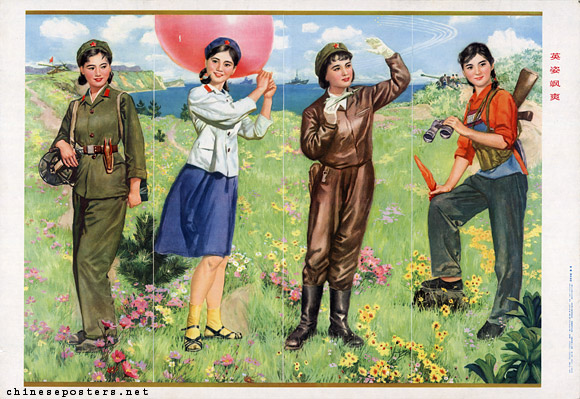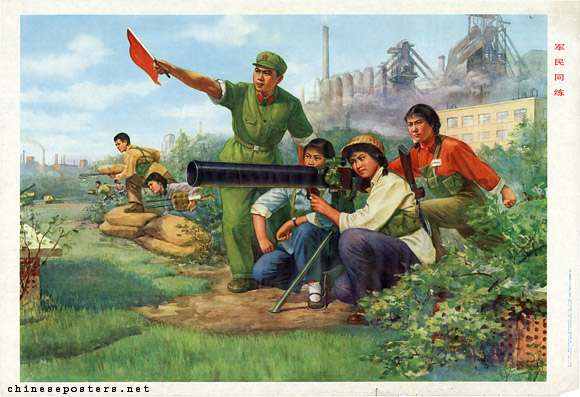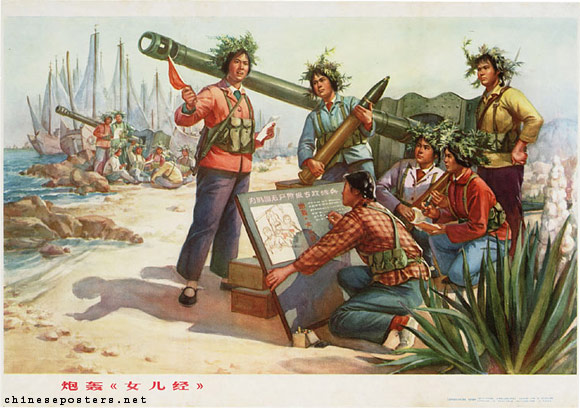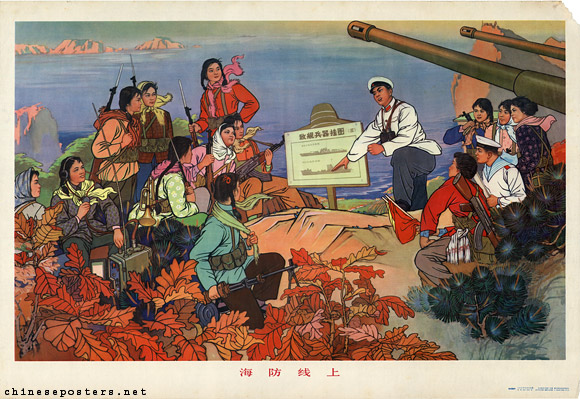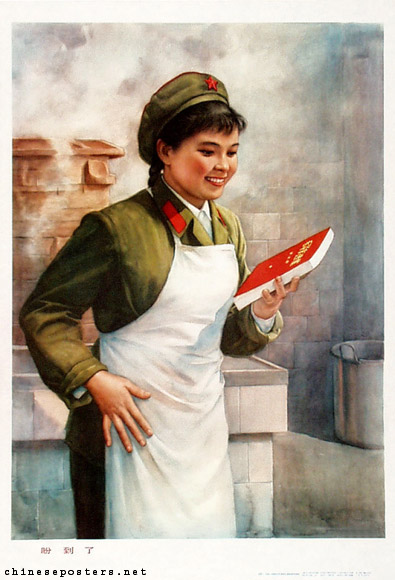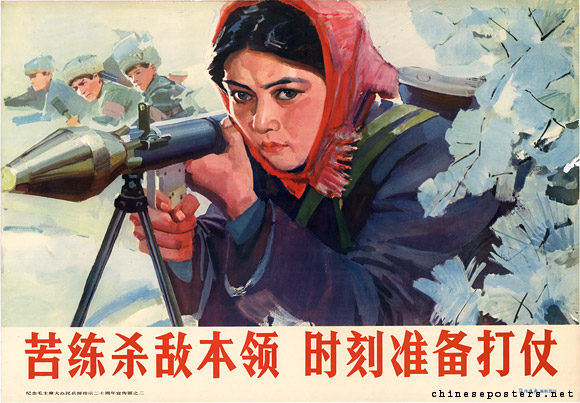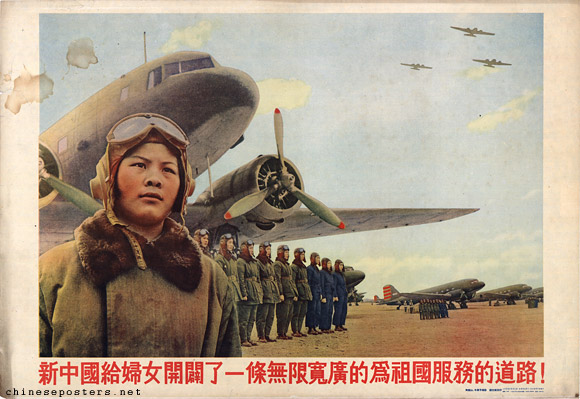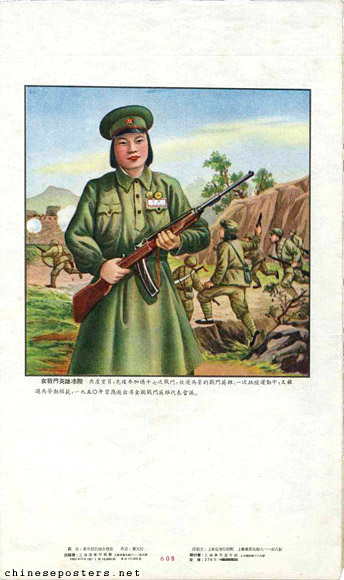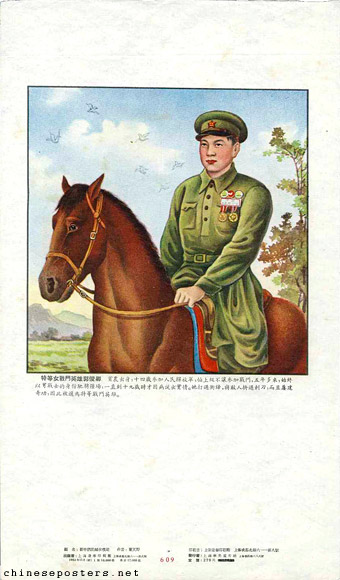As a revolutionary organization, the PLA has been an equal opportunity employer avant la lettre: women were given the opportunity to sign up and found gainful employment within the ranks.
The army and the people drill together, 1977
For many young women, in particular for those of worker or peasant background, joining the PLA was considered an excellent opportunity to break out of the traditional bonds of oppression and discrimination which still held most of them captive.
Bombard the 'Classic of Women', 1975
Joining the PLA almost automatically led to acceptance by the Party, and this in turn opened various career prospects that otherwise would have remained inaccessible to them. The army enabled young women to acquire non-traditional skills that were useful in civilian life; demobilized soldiers were honored in their villages and, very important, often had good access to the local bureaucracy thanks to the connections they had formed while serving.
On the battlefront of coastal defense, 1975
Posters typically depict women as shouldering combat duties of playing important roles in women's militia, to make abundantly clear what they were worth. One of the themes that inspired many posters was the emergence of women parachuters. In reality, women often were put to work in more 'feminine' occupations: the PLA textile factories, for example, or army canteens.
What I longed for has arrived, 1978
One important type of military work where many women ended up was in the so-called song and dance troupes. These companies were responsible for all sorts of artistic and cultural work among the troops, ranging from performing ballets and operas to giving recitals and concerts.
Train hard to increase combat efficiency, be always prepared for war, ca. 1972
Many women carved out a career in the PLA. Others became cadres in their places of origin, thereby providing status for their families, although they still had to face the problem of the traditional male chauvinism that continued to exist. Even nowadays, with a much richer choice in employment opportunities, an Army career is seen as worthwhile by many.
The New China has given women the opportunity of serving the nation boundlessly and liberally!, 1953
